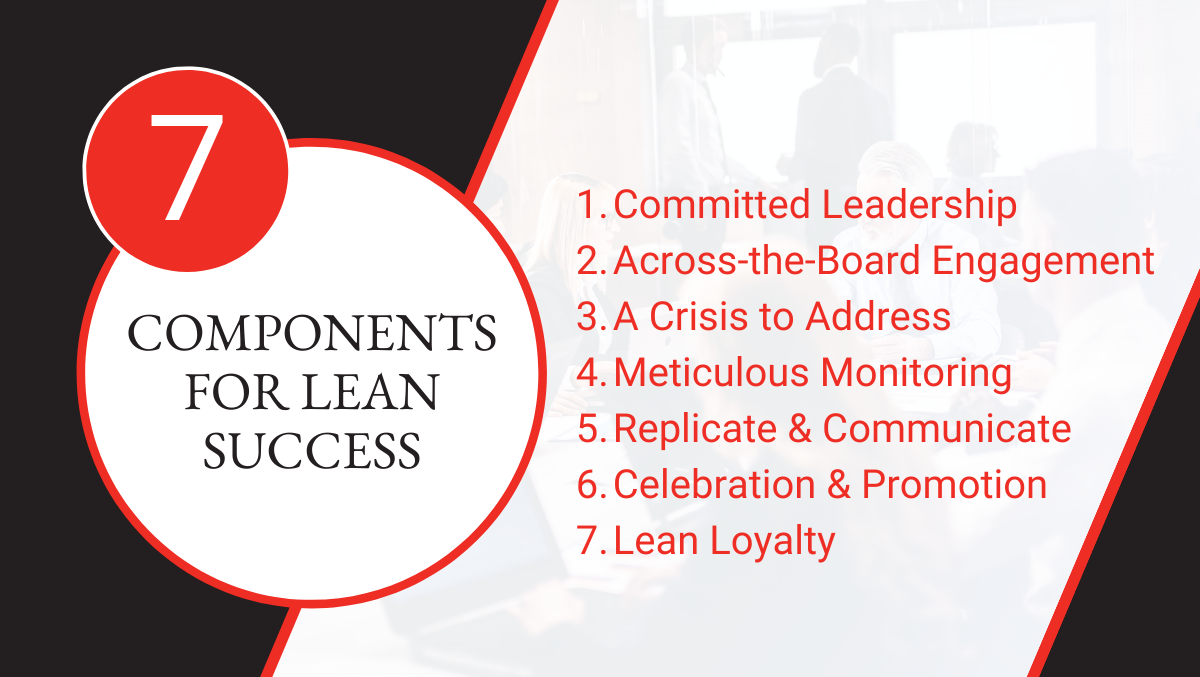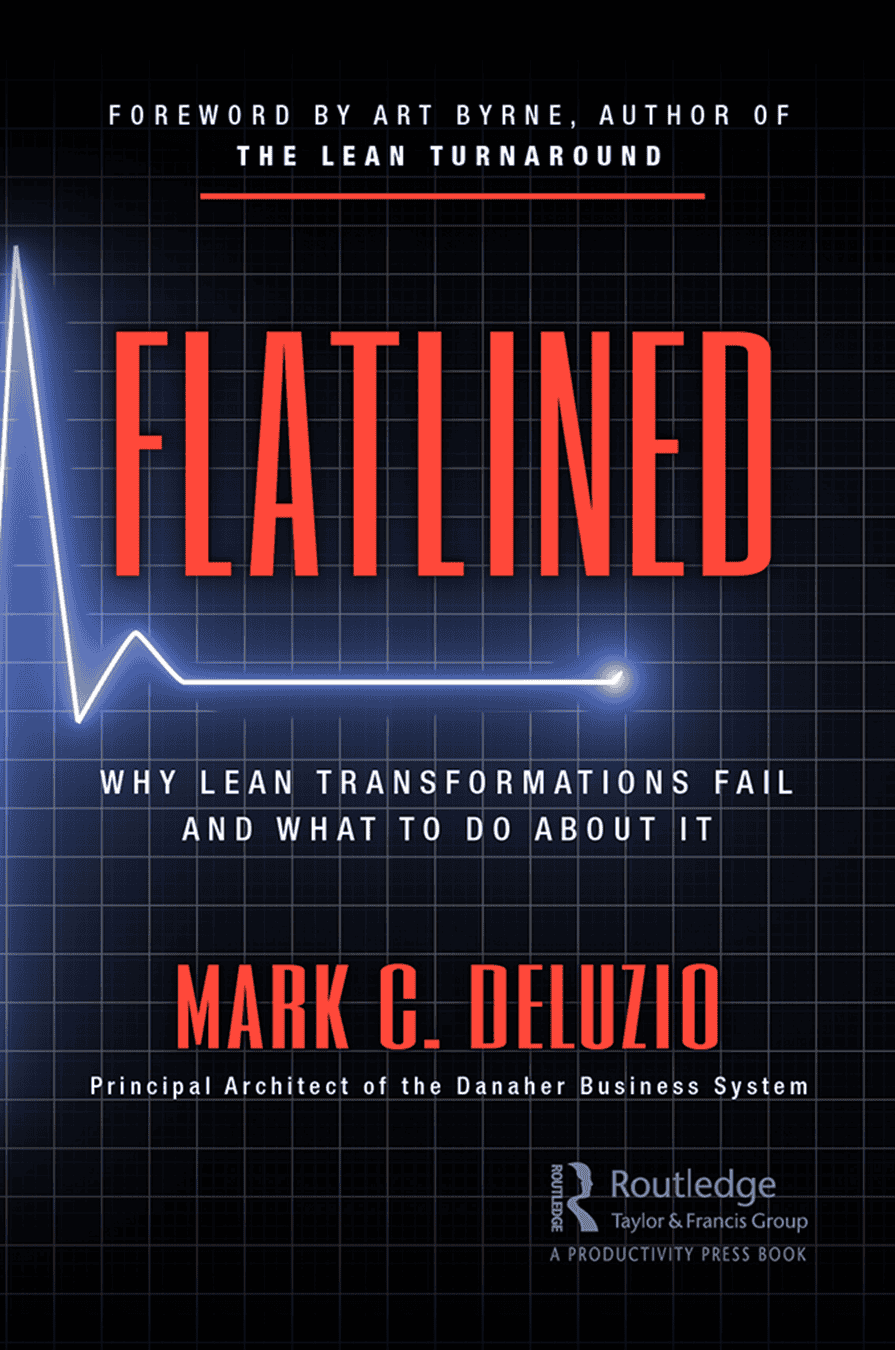If you’re tired of watching your company deplete resources, waste working hours, and squander budgets — it’s time to take a step back, assess, and make a plan for change.
The height of an operational dilemma might not seem like the easiest time to dive into the wild world of Lean transformations, but it actually is one of the most opportune moments for full-scale metamorphosis.
The Lean business model offers a comprehensive approach to organizational renewal that cuts costs, streamlines production, and empowers your employees to make meaningful contributions. While the transformation process requires dedication and Lean expertise for smooth navigation, the all-encompassing methodology refines every facet of your business from the shop floor to the boardroom.
The result? A continuously improving organization in which each department operates effectively and efficiently, from logistics and admin to manufacturing and product development.
Learn More: Choosing the Right Lean Consultancy Team
Continue reading to learn about the must-haves of a successful Lean transformation so your organization can move towards a more agile, responsive, and customer-focused way of doing business.
Lean Transformations: Company-Wide or Department-Specific?
As companies continue to face increasing pressure to respond intelligently to the rapidly changing market conditions, many are integrating facets of the Lean methodology to polish up processes.
While department-specific or truncated Lean transformations are readily accessible and can deliver significant benefits, an inconsistent approach might not be enough to truly stay competitive. In contrast, company-wide Lean transformations are designed to create an environment of innovation and continuous improvement that is sustainable across the entire organization.
At Lean Horizons Consulting, we guide companies through the successful implementation of comprehensive Lean transformations. Our experience has shown that the necessary work goes beyond improving operations within a single department or functional area. Taking a broader, more holistic approach that encompasses the entire enterprise — including strategy and culture — is the key to unlocking sustainable change.
Learn More: What is Lean Transformation and How Does it Help Your Business?
A successful Lean enterprise transformation is driven by the goal of creating a culture of continuous improvement and waste elimination, which not only affects how processes are done but also how team members think and behave.
Must-Haves for Lean Transformation

1. Committed Leadership
One of the most crucial components needed to successfully integrate the Lean business model is top-down, organization-wide commitment. But, while engagement and dedication from employees can sway the trajectory of a transformation, an unenthused or inactive leadership presence can tank the whole operation.
Begin with a shared vision of what the organization could and should be. This collective goal can unify and strengthen the entire company as team members work to achieve that vision together.
Listen: Lean 911 Ep. 1: Lean Mindset | Lean Horizons Consulting Podcast
2. Across-the-Board Engagement
The lean business model requires a considerable cultural shift, and the success of this transition is closely tied to the level of engagement from all areas of the organization.
When every team member feels valued and aligned with the shared objective, a powerful force for change is created within an enterprise. Getting every employee involved in the transformation process can lead to a greater sense of commitment and responsibility, which translates to improved efficiency and, ultimately, better customer satisfaction.
3. A Crisis to Address
Without an obstacle to overcome, getting an entire organization committed to widespread change can be difficult, to say the least. This is why, despite seeming counterintuitive, an operational crisis can be a rich time for a Lean transformation.
When immediate relief from the budget, process, or value crisis is felt, the team will have firsthand experience of the satisfaction that Lean enterprise transformations bring.
4. Meticulous Monitoring
Throughout a Lean enterprise transformation, progress must be monitored, plain and simple. Without regularly tracking and measuring the outcomes of your efforts, it’s impossible to know whether the transformation is on track to meet its goals.
Additionally, by collecting and analyzing data on key performance indicators, organizations can identify any areas that might require corrective action or adjustment to improve. It is only through precise tracking that the desired results of continuous improvement and greater effectiveness are achieved.
Learn More: Are Your Metrics Holding You Back?
5. Replicate and Communicate
There will, inevitably, be facets of the Lean business model that have a more noticeable effect on the efficiency of a company.
Equipped with the data from your meticulous monitoring, identifying the individual teams, departments, or processes experiencing the most success should be relatively simple. From there, it is vital to translate this information to all team members within the business.
By building a community of learning and sharing, organizations can accelerate their transformation efforts and have a faster, more significant impact.
6. Celebration and Promotion
As the transformation process unfolds, be sure to schedule regular check-ins for celebrating achievements to maintain and build momentum.
Showing appreciation for the efforts of your team is integral to creating a sense of ownership and responsibility among the workforce. This, in turn, drives a deeper engagement and commitment to the transformation process by creating a sense of purpose and accomplishment.
Celebrations can also come in the form of individual or department rewards and the promotion of key players. Ensure your Lean efforts are reinforced by rewarding or promoting based on an individual’s ability to drive the transformation.
Learn More: Does Your Company Have a Lean Culture?
7. Lean Loyalty
Making Lean processes and methodologies the default approach for driving improvement and resolving issues is critical to the success of a Lean enterprise transformation.
The tenets of such a transformation provide a systematic and disciplined approach to problem-solving that allows leaders to identify root causes and implement solutions. To create a long-term, sustainable culture of excellence, always prioritize Lean principles — like respect for people and customer focus — when correcting a mistake or settling a conflict.
These 7 crucial components for a successful, results-backed Lean enterprise transformation are just the tip of the iceberg. Are you ready to dive deeper?
Our internationally-experienced team of Lean strategists can guide your organization through this evolution and into a new era of efficiency and value creation. Jumpstart your journey with a consultation, or learn more from our podcast, articles, and books.

